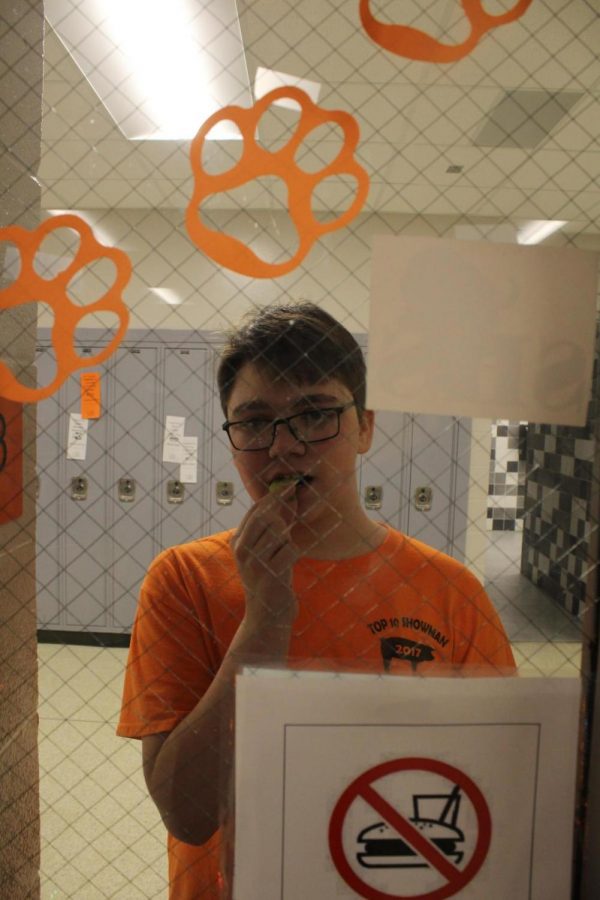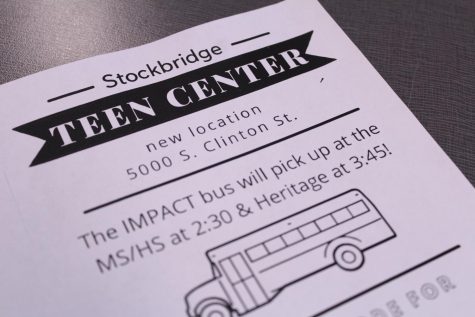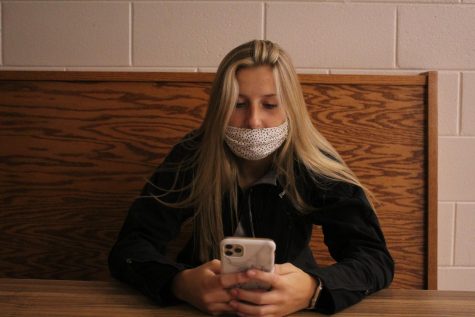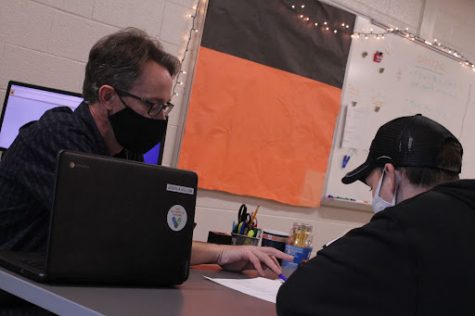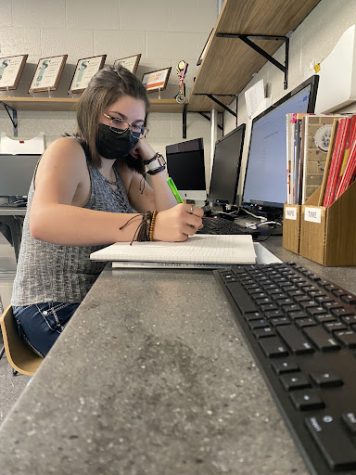Just let us eat
In a mocking mood, sophomore Evan Williams stands outside Spanish teacher Christina Villegas’ room eating a snack. Villegas, one of many instructors, allows no food in her classroom.
We are constantly reminded that breakfast is the most important meal of the day. But, what happens if we aren’t able to eat it? We become distracted learners who are not able to listen and learn. Teachers try to help, but they just can’t seem to make us focus.
A survey questioned 28 high schoolers about how many teachers allow them to eat in class. A majority of the respondents (19) said fewer than four teachers. For those who cannot eat in class, 68 percent said that they become easily distracted.
Eating while learning would allow students to be less rushed if they wake up late in the morning. Some actually feel sick when they don’t eat, which can lead to students going home early. This absence causes school-wide attendance to slowly fall, and in the end, is not good for learning. Another compounding problem of reduced access to food is lunch times, which are only about 25 minutes. Considering the length of the lunch line, some students get way less than 25 minutes to eat.
Learners who do not eat are more likely to not do as well as students who have eaten according to Community Health, a health and wellness news organization. This nourishment keeps a student focused and alert.
When not energized learners could possible fall asleep during one or multiple classes. Adults may think that eating food in class will become a distraction, but if a student chooses an item of food to eat quietly that is in a plastic bag, it shouldn’t become a distraction.
Teachers may also say that it will cause messes, but after students finish eating, they can be required to clean up after themselves.
If students can’t eat in class, they won’t be able to focus on what’s really important which is getting their work done on time.



